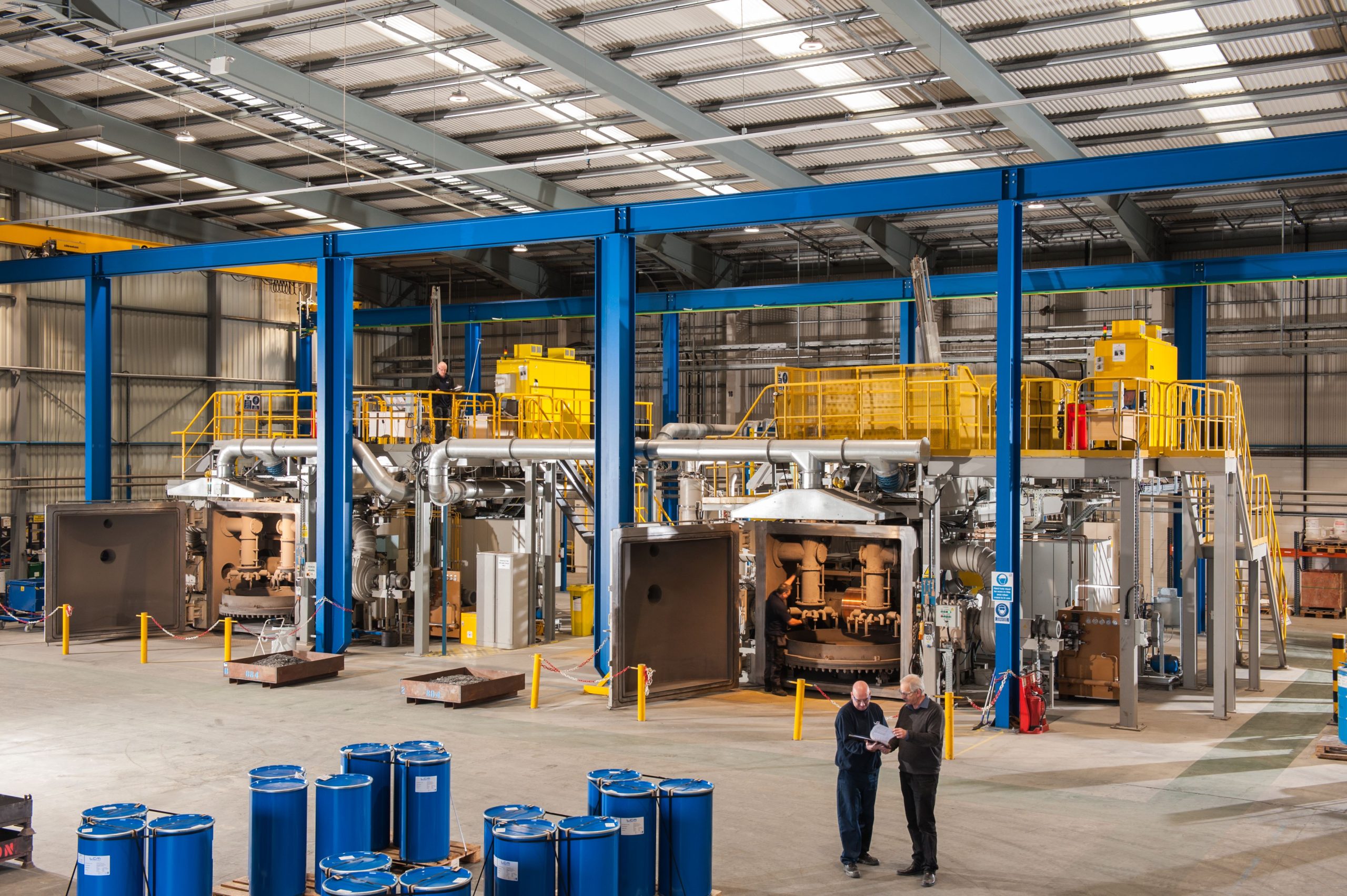Ian Higgins, Managing Director of Less Common Metals Ltd, takes us back in time to life before LCM.
When, in the late 1950s, the United Kingdom Atomic Energy Authority’s Harwell laboratory was developing ways to process monazite, a brown phosphate mineral, few could have predicted that research would lead to the establishment of a long standing and highly successful rare earth processing industry in the North West of England.
Harwell’s interest in monazite was to recover thorium, a white naturally-occurring radioactive metal, with potential use as a nuclear fuel. Research led to the development of solvent extraction technology which was to be later licenced to both Rhone-Poulenc in France and Molycorp in the USA. Meanwhile, in the UK, a new company, Thorium Ltd, was set up in Widnes to exploit the Harwell technology. At Thorium Ltd, monazites from South Africa, Australia and the USA, were processed to extract both thorium and the key biproducts, rare earths.
By 1967, interest in rare earths led to the creation of a new company in Widnes, this time a joint venture between Johnson Matthey and Thorium Ltd’s parent, Rio Tinto Zinc. This new company used technology developed by Johnson Matthey to further purify the rare earths generated by solvent extraction processing of monazite. Using all the imagination that went into the naming of Thorium Ltd, the venture was named Rare Earth Products.
Although interest in thorium as a nuclear fuel had diminished well before the end of the 1960s Thorium Ltd continued production, mainly of thorium nitrate for use in gas mantles, until it’s closure in 1975. At that time, Rio Tinto Zinc also exited the rare earth business in Widnes and Rare Earth Products became a wholly-owned subsidiary of Johnson Matthey.
Fast forward 20 years and the metallurgical applications of rare earths had become hugely interesting. By then Johnson Matthey Rare Earth Products had focussed onto production of samarium-cobalt (SmCo) and neodymium iron boron (NdFeB) alloys for magnet applications. Customers for the products were in the UK at that time, mainly Philips Southport and Swift Levick Magnets in Derbyshire, Europe and further afield.
In the early 1990s a new player had emerged on the scene, Less Common Metals Ltd, founded by David Kennedy, ex-Technical Manager at Rare Earth Products. LCM also specialised in the manufacture of rare earth alloys for magnet production and, with the acquisition of a unique co-reduction route for producing samarium cobalt, quickly became established as a major global supplier of such materials.
Rare Earth Products ceased business in 2001 with personnel and equipment transferring to LCM. A new even stronger LCM was created with enhanced melting facilities and a dedicated in-house analytical laboratory. Later that same year LCM was to receive the Queen’s Award for Enterprise: International Trade (Export).
Sadly, the UK customers for magnet alloys are no more. However, LCM is today a global supplier of rare earth alloys, shipping products to mainland Europe, Asia and the Americas.
In 27 years of existence, LCM has experienced many developments, including three changes of ownership, two relocations, installation of major items of new equipment and processes, and migration to ISO9001 Quality and ISO14001 Environmental Standards. We have enjoyed periods of significant and rapid growth but also have had times when life was not so good.
Today LCM continues to focus on core values of ethical business practice, technical strengths, strong customer focus and relationship building. We have a loyal, committed and highly talented workforce. Whilst the challenges facing the rare earth industry are as intense now as they have ever been, LCM is well equipped to adapt to the ever-changing environment.
With thanks to Dave Murphy, who retired in 2014 having previously held posts as Commercial Director at LCM and General Manager at Johnson Matthey Rare Earth Products, for confirming key facts.

